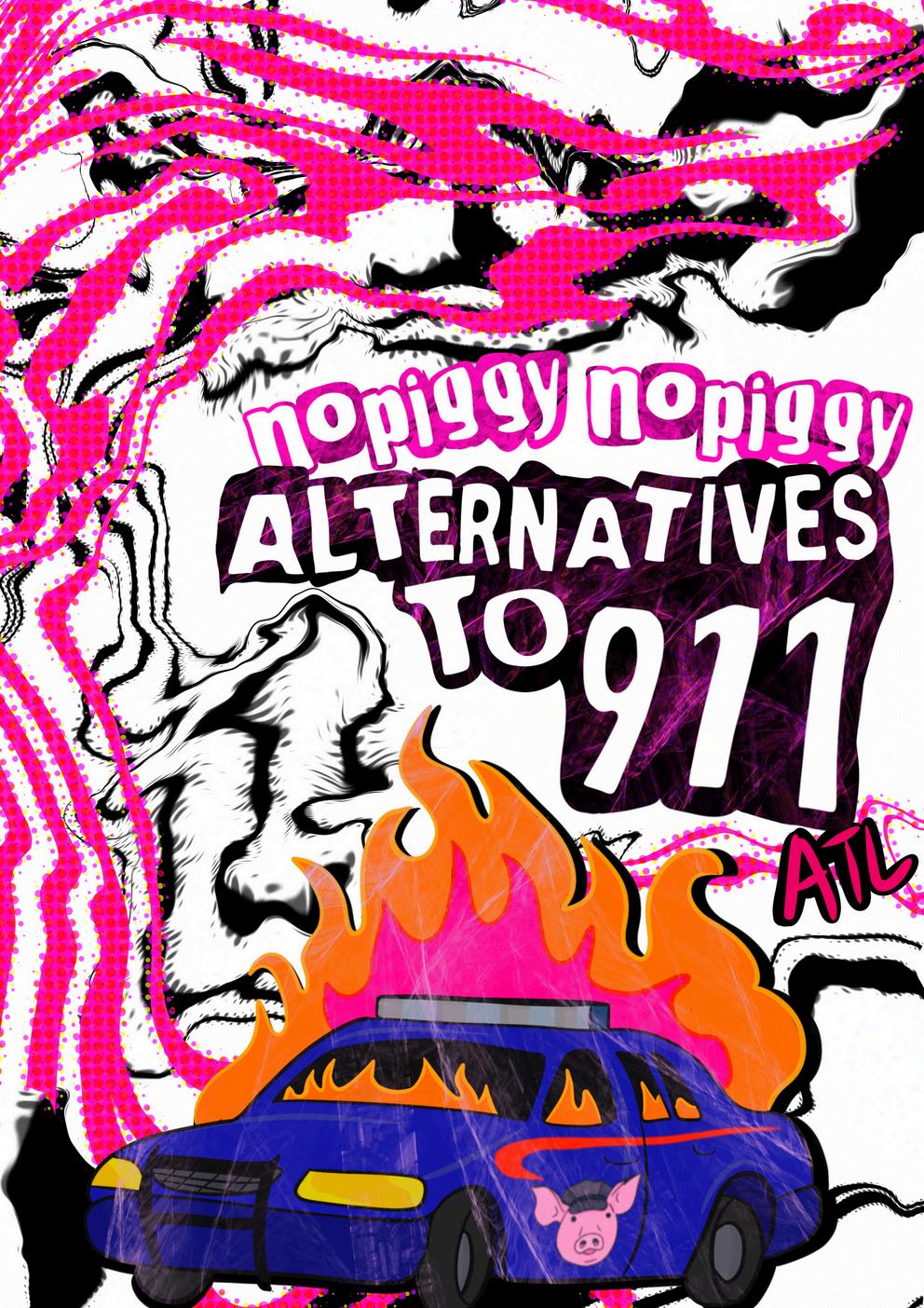
A B L E O F
O N T E N T S
A F E W R E A S O N S W H Y
W E S H O U L D Q U I T
C A L L I N G T H E
P O L I C E
P R O P E R T Y > P E O P L E
S T E P S T O A S K
Y O U R S E L F B E F O R E
C A L L I N G T H E
P O L I C E M E D I C A L
E M E R G E N C I E S
I N T E R V E N T I O N & D E - E S C A L T I O N
C R E A T E A C O M M U N I T Y S A F E T Y P L A N C O M M U N I T Y B A S E D A L T E R N A T I V E S T
C
T
P O L I C E I N A T L A N T A A D D I T I O N A L R E S O U R C E S
COMMUNITY UNITY NETWORK 4 TRANSFORMATION & SOLIDARITY 3
O
4 5 6 8 10 12 13 22

A few reasons Why we should
QUIT CALLING THE POLICE
Cops often turn tense situations into outright chaos. Their presence can escalate conflicts, especially in marginalized communities where aggressive tactics are the norm. Instead of calming things down, they might start swinging batons and spraying tear gas.

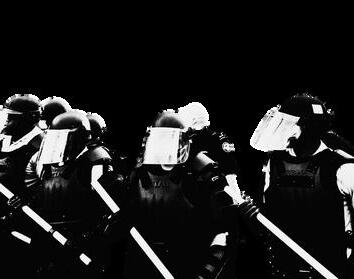

Police aren’t trained to handle social issues like mental health crises, homelessness, or substance abuse. They show up with cuffs and guns when care and understanding are needed, Persons experiencing mental health crisis are 16x more likely to be shot by the police. You risk criminalizing the victims rather than aiding them, especially if they are undocumented or experiencing drug abuse.

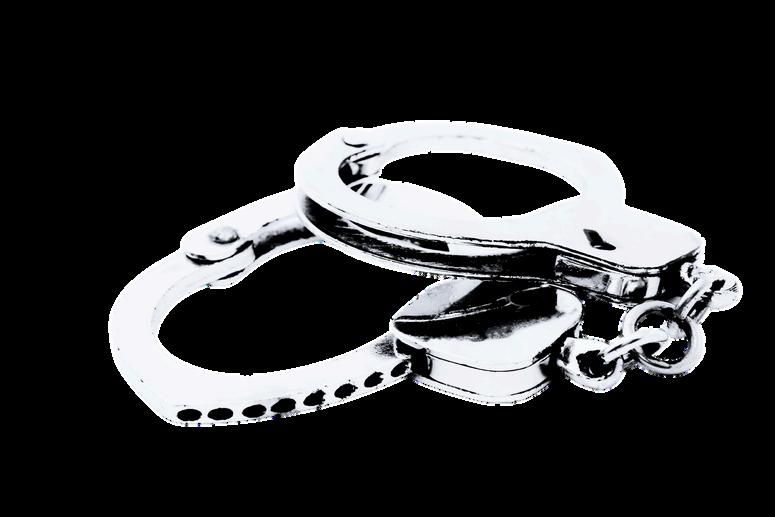
Got a minor or a non-violent issue? Calling the cops can turn it into a major one. What could’ve been solved with a conversation or mediation often results in arrests and criminal records, leading to lifelong consequences over something that could’ve been handled differently.


Cops are the gatekeepers of the prisonindustrial complex, a beast that thrives on mass incarceration. More police action means more people funneled into a system that profits off locking people up, especially those from Black, Indigenous, and Hispanic Communities. Incarcerated people provide at least $9 billion in services to the prison system and produce $2 billion in goods. Black people are admitted to jail 2-6x more than that of white or Hispanic people due to systemic racism and racial profiling,
COMMUNITY UNITY NETWORK 4 TRANSFORMATION & SOLIDARITY 4

Its always been property over people
The police force, from its inception, has primarily functioned to protect the property of the elite rather than ensuring the safety and well-being of all citizens. This systemic bias is evident in historical context, resource allocation, and enforcement patterns. Early American police departments were established to safeguard the assets of merchants and industrialists, a legacy that persists today with budgets skewed towards protecting affluent areas and high-end commercial properties. Police responses to property crimes in wealthy neighborhoods are swift and thorough, in stark contrast to their handling of personal harm crimes in marginalized communities. The aggressive policing of protests, particularly those advocating for social justice, further highlights this bias, with law enforcement prioritizing the protection of storefronts and government buildings over protester safety. Additionally, in gentrifying areas, increased police presence often results in the harassment and displacement of long-term, lower-income residents to protect the interests of new, wealthier inhabitants. Laws criminalizing homelessness serve to maintain the comfort of the elite while punishing the poor. High-profile cases like Occupy Wall Street and collaborations with private security firms underscore the prioritization of corporate and elite interests. This approach neglects the community's broader needs, reinforcing social inequalities. In contrast, restorative justice, which focuses on healing, rehabilitation, and repairing relationships, offers a path towards addressing these systemic issues, emphasizing the need to shift resources from punitive policing to community-based solutions that promote equity and justice for all.
COMMUNITY UNITY NETWORK 4 TRANSFORMATION & SOLIDARITY 5
sTEPS TO ASK YOURSELF BEFORE CALLING THE POLICE
sTART hERE
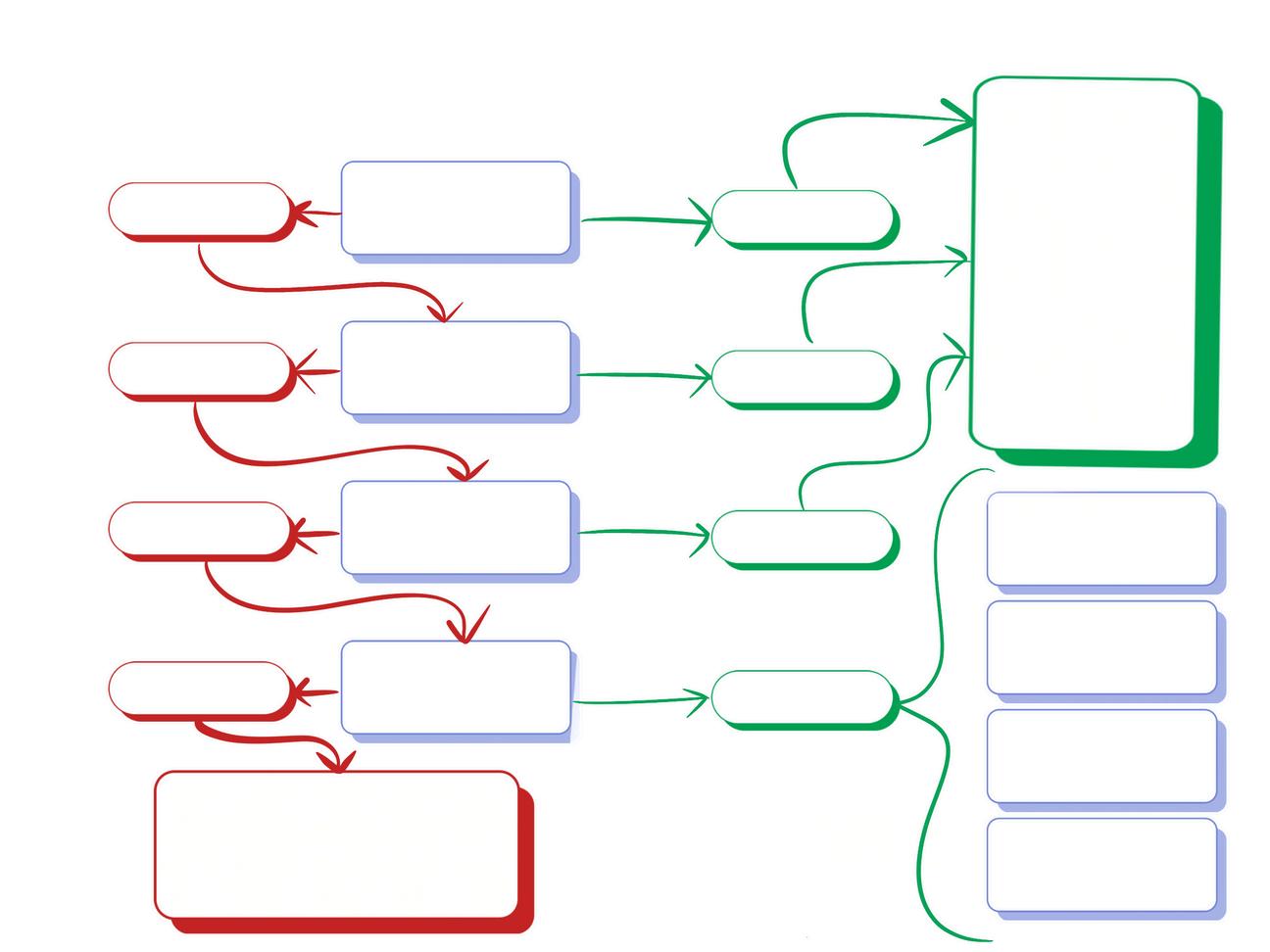
No I Need to Respond
Is this merely an inconvenience to me? Can I put up with this and be okay?
No I Need Backup
Can I handle this on my own? Is this something I could try to talk-out with the person?
No I Need a Professional
Is there a friend, neighbor, or someone whom I could call to help me?
Could we use Mediation to talk through what happened or Could I call an emergency response hotline?
IF I CALL THE POLICE, DO I UNDERSTAND HOW INVOLVING THE POLICE COULD IMPACT ME, THE OTHER PERSON, AND SURROUNDING COMMUNITY?
NO.

Yes, I Can Deal. MY COMMUNITY AND I HANDLED THIS SITUATION WITHOUT THE POLICE Yes, I Can Talk it Out Yes, I Can Call a Friend to Help. Yes! Georgia Crisis & Access Line (GCAL): 1-800-715-4225 Alternative Dispute Resolution: 404-612-4549 *Crime Victims Advocacy Council: 770-333-9254 *Resource is Christian Affiliated Youth Crisis Text Line: Text GA to 741-741 Flow Chart info is from SURG-DC Learn more at wwwsurjdccom
What About Medical Emergencies?
When you call 911 for a medical emergency, the call first goes through the police before being transferred to EMS. If the situation involves or is suspected to involve a "crime," both police and EMS are dispatched. High-violence incidents are more likely to see a police response. In heavily policed, rapidly gentrifying neighborhoods, police often accompany EMS.
Decide if the medical emergency requires calling 911 or if it's possible to get someone to medical attention through a personal ride, rideshare, or cab. Keep in mind that some medical situations can worsen or become fatal if the individual is moved, so assess the situation carefully. If you do decide to call 911, remember that you have the right to refuse police entry into your space. However, if EMS personnel do not feel safe, they may keep the police on scene and bring them in. EMS also has the authority to cancel the police response if they choose.
Tips and Alternatives to Calling 911
First Aid Training: Equip yourself with basic first aid knowledge and skills. Taking a first aid course can help you manage minor injuries and emergencies more effectively without needing to call 911.
Local Health Hotlines: Keep a list of local health hotlines and urgent care centers. Many areas have nurse advice lines or urgent care facilities that can provide guidance and treatment for non-life-threatening situations.
COMMUNITY UNITY NETWORK 4 TRANSFORMATION & SOLIDARITY 8
What About Medical Emergencies?
Telemedicine: Use telemedicine services to consult with a healthcare professional who can assess the situation and provide advice or prescriptions as needed.
Rideshares and Cabs: For non-life-threatening emergencies, consider using a rideshare service or cab to transport the person to the nearest hospital or urgent care center. This can be faster and less stressful than waiting for an ambulance.
Neighbors and Friends: Build a network of trusted neighbors and friends who can help in emergencies. Sometimes, a quick ride from a neighbor can be the safest and fastest way to get someone to medical care.
Personal Emergency Plan: Create a personal emergency plan that includes contacts for local medical facilities, alternative transportation options, and a list of people who can assist in an emergency.
Keep Emergency Supplies: Maintain a well-stocked first aid kit and emergency supplies at home. This can help you handle minor injuries and stabilize the situation until professional help is available.
Remember, while these alternatives can be helpful, they are not substitutes for professional medical care in serious or lifethreatening situations. Always assess the situation carefully and make the best decision for the safety and well-being of the individual in need.
COMMUNITY UNITY NETWORK 4 TRANSFORMATION & SOLIDARITY 9
Intervention & De-escalation
When faced with a tense or potentially dangerous situation, employ de-escalation techniques (If you feel safe to do so) to calm things down and prevent the need for police intervention. Here are some steps you can take:
Distract
Redirect attention away from the source of conflict or agitation to something else that is less provocative or calming. This technique aims to interrupt the escalation of emotions or tensions and create a window for de-escalation.
Delegate
Involve others who may be better equipped or have a different relationship with the individuals involved in the conflict. Delegating can bring in additional perspectives or resources to help manage the situation effectively.
Keep a record of events, interactions, or incidents. Documentation is crucial for maintaining accountability, understanding patterns of behavior, and ensuring that accurate information is available for future reference or actions
COMMUNITY UNITY NETWORK 4 TRANSFORMATION & SOLIDARITY 10
Document
Delay
Allow time and space for emotions to settle or for additional resources to become available. Sometimes a delay can prevent rash decisions or actions that could escalate the situation further.
Direct
Provide clear and firm guidance or instructions to manage the situation effectively. Directing involves assertively communicating expectations or actions that need to be taken to resolve the conflict or crisis.
https://www.interruptingcriminalization.c om/resources-all/abolitionist-bystanderintervention-and-de-escalation-a-pocketzine-for-youth
https://righttobe.org/guides/bystanderintervention-training/
https://antidotezine.com/2024/01/31/zinedeescalation/
https://www.svdp.us/wpcontent/uploads/2021/11/Deescalation-SkillsMindset-Handout final.pdf
COMMUNITY UNITY NETWORK 4 TRANSFORMATION & SOLIDARITY 11
More:
Learn
Create a Community Safety Plan
Creating a community safety plan empowers individuals to address crises effectively while fostering trust, solidarity, and sustainable solutions within their community, rather than relying on harmful police interventions.
Collaborate
Work Together & Engage with others safety plans should involve at least one other person for support and follow-up.
Identify Risks
Brainstorm potential risks and gather information about threats
Develop Safety Strategies
Determine quick exit routes.
Determine who can take on certain roles and Ask trusted individuals to take on certain roles
Watcher
Emergency Contact
Calm Coordinator
Record Keeper
Regular Checker
Signal Sharer
Protector
Support Provider
Witness
Negotiator
Intervener
Care Provider
Safe Haven Host
Safekeeper
Secure Essentials & Keep important items in safe locations. Determine safekeeping of items if someone needs to escape
Install or change locks for better protection.
Contact friends, family, or organizations for assistance in creating safety network
Arrange for children to be in secure locations.
Establish safe ways to communicate.
Use signals to indicate danger or safety.
Identify who to call in a crisis
Clarify who should know sensitive information. Plan secure transportation routes and parking. Create pick up plan for safety network. Choose confidential or public spaces strategically.
Identify secure locations for hiding or escaping if needed. Think about situations that require immediate action
COMMUNITY UNITY NETWORK 4 TRANSFORMATION & SOLIDARITY 12
Community Based Alternatives to Police in Atlanta
Typically, people call the police when they are experiencing or perceive an emergency and need immediate assistance. To provide effective alternatives to calling the police or 911, the resources listed here are primarily those offering immediate help through emergency or crisis services.
In cases of immediate risk of harm to the caller or another person, child abuse, or abuse of a vulnerable adult, these resources may be required to contact the police. Where we know or suspect that a resource may involve law enforcement beyond what is legally required, we have noted that in the listing.
These resources are not comprehensive but are intended to provide the specific services described. If you are in immediate danger and feel safe doing so, call 911.
Find these listings at www.dontcallthepolice.com/atlanta/
COMMUNITY UNITY NETWORK 4 TRANSFORMATION & SOLIDARITY 13
Housing ATL311
The City of Atlanta provides residents and customers with Atlanta 311 (ATL311) 311 is Atlanta’s primary phone number for government information and non-emergency services. Connects callers with local services. Monday – Friday, 7 am – 7 pm, or search online 24/7 Call 311
https://www.atl311.com/
HOPE Atlanta
Providing housing, outreach, prevention, and emergency services to individuals and families living in 28 counties in Metro Atlanta.
9 a.m. – 5 p.m., Monday – Friday (404) 817-7070 (General Intake) (404) 574-1681 (Veteran Intake)
https://hopeatlanta.org/
Housing Justice League
Hotline providing information and referrals to community resources for housing-related issues, including threats of eviction, resources for people who are experiencing intimate partner violence (IPV), and resources for people who are HIV+ or immunocompromised. They support sex workers, survivors, HIV+ and immunocompromised folks. Hotline volunteers are also able to connect you with continued support of HJL volunteer organizers if you want to publicly fight for your home.
9 a.m. – 5 p.m., 7 days a week (404) 946-9953
https://www.housingjusticeleague.org/
United Way Atlanta
211 A referral service for shelters and other services around Atlanta. Searchable database on their website.
Call 211 http://211onlineunitedwayatlantaorg/ COMMUNITY UNITY NETWORK 4 TRANSFORMATION & SOLIDARITY 14
Housing
Trans Housing Atlanta Program
Provides direct assistance/resources for individuals experiencing homelessness. Services are majority centered towards those who are transgender and gender non-conforming. Emergency shelter, rent and bill assistance (404) 458-7948 (for crisis, may need to leave a message)
http://transhousingatlantaorg/
Gateway Center*
Gateway Center provides access to critical services and housing for the most vulnerable people in our community such as coordinated entry, basic needs services (i.e. showers, clothing closet, etc), short-term residential housing (shelter), linkage to healthcare (medical, behavioral, and dental), and employment resources. Gateway’s Clear Path program is the process through which people experiencing homelessness in the City of Atlanta can access housing assessments; emergency shelter placement; and linkage to long-term housing placement options available through the Housing Queue
Clear Path: 9 a.m. – 4 p.m. (404) 215-6600
https://wwwgatewayctrorg/
*Please be aware that Gateway partners with the Dept. of Child and Family Services for
Find these listings at www.dontcallthepolice.com/atlanta/
certain programs
COMMUNITY UNITY NETWORK 4 TRANSFORMATION & SOLIDARITY 15
LGBTQ+
Solutions Not Punishment (SNaP Co.)
A Black, Trans-led, broad based collaborative to restore an Atlanta where every person has the opportunity to grow and thrive without facing unfair barriers, especially from the criminal legal system Their Taking Care of Our Own program provides direct financial support for trans folks navigating personal emergencies. (678) 722-5532
https://wwwsnap4freedomorg/
Trans Housing Atlanta Program
Provides direct assistance/resources for individuals experiencing homelessness. Services are majority centered towards those who are transgender and gender non-conforming. Emergency shelter, rent and bill assistance (404) 458-7948 (for crisis, may need to leave a message)
http://transhousingatlantaorg/
Transcending Barriers Atlanta
Non-profit founded by transgender women of color, providing supportive services such as transportation to and from appointments, scheduling follow-ups, joint attendance in our support groups, and resource referrals to the transgender and gender non-conforming community. (770) 970- 0810
https://wwwtranscendingbarriersatlorg/
Find these listings at www.dontcallthepolice.com/atlanta/
COMMUNITY UNITY NETWORK 4 TRANSFORMATION & SOLIDARITY 16
Mental Health
Georgia Crisis & Access Line (GCAL)*
24/7 mobile response provides immediate on-site crisis management through assessment, de-escalation, consultation and referral with post crisis follow up to assure linkage with recommended services. 1 (800) 715-4225
https://www.georgiacollaborative.com/providers/georgia-crisisand-access-line-gcal/
*Please note, this resource is partnered with the GA
Grady Behavioral Health
Individuals experiencing urgent behavioral health issues may seek help at Grady’s Emergency Department, which has aroundthe-clock behavioral health staff. Walk-ins welcome – after hours calls should go through GCAL.
80 Jesse Hill Jr Drive, SE 24-hour nurse helpline: (404) 616-0600. https://www.gradyhealth.org/care-treatment/behavioral-healthcenter/
Dept. of
Behavioral Health
NAMI North Side Atlanta – Helpline 1 (800) 273-8255 Raksha Promotes a stronger and healthier South Asian community through confidential support services, education, and advocacy. (1 866) 725-7423 https://www.raksha.org/
Find these listings at www.dontcallthepolice.com/atlanta/ COMMUNITY UNITY NETWORK 4 TRANSFORMATION & SOLIDARITY 17
Domestic Violence & Sexual Assault
Atlanta Volunteer Lawyers Foundation
AVLF provides legal services to victims of domestic abuse
They can help you get a Temporary Protective Order to provide legal protection against your abuser. We can also help you with safety planning, access to shelter, and referrals to counseling services, legal representation, and other resources. (404) 612-4316 9:00 AM – 2:00 PM, Monday through Friday. https://avlf.org/
Day League
provides direct services, prevention education, and advocacy for youth and adult survivors of sexual assault, their families, and the community as a whole. 24-hour crisis hotline, forensic examinations, medical, police, and court advocacy, and therapy. Services are free. (404) 377-1428 (24/7) http://www.dayleague.org/
Georgia’s Domestic Violence Hotline
24-Hour hotline providing safety information and referrals 1-800-33-HAVEN
Southern Crescent Sexual Assault and Child Advocacy Center
Offers free support services for anyone who has been raped, sexually assaulted, sexually harassed, or sexually abused. 24/7 crisis hotline, referrals to community resources, forensic services, victim advocacy, and therapy services. (770) 477-2177 (24/7) https://wwwscsacorg/
Find these listings at www.dontcallthepolice.com/atlanta/
COMMUNITY UNITY NETWORK 4 TRANSFORMATION & SOLIDARITY 18
Please note, people answering these calls may be mandatory reporters, and required to make a report to CPS or law enforcement in certain situations.
Covenant House
Provides emergency shelter and more for young people age 18-24 facing homelessness and human trafficking Emergency shelter offers youth safety, food, clothing, showers, and a warm, safe bed, and is available for 30 – 90 days. Transitional long-term shelter also available. (404) 713-0954
https://covenanthousega.org/
Georgia Cares
Serves any youth who is at risk of commercial sexual exploitation and sex trafficking. 24-hour hotline operators will assist the caller in coordinating emergency services at all hours of the day and night for youth who may be a victim of exploitation or trafficking. 1 (844) 8GA-DMST (842-3678) https://www.gacares.org/
Through their Supportive Services Outreach Center, provides assistance to homeless or at-risk young people in need of transitional services and guidance. The SSOC provides a wide-range of supportive services for disadvantaged young people including mentorship, intensive case management, counseling, educational assistance, employment support & training, transportation assistance, free health checks and grooming resources, assistance with basic necessities, skill building activities, and workshops. (404) 257-6412 https://yagc.net/
Young Adult Guidance Center, Inc.
Youth Crisis Text Line 24/7 mental health text line for teens and youth Text GA to 741-741
COMMUNITY UNITY NETWORK 4 TRANSFORMATION & SOLIDARITY 19
YOUTH
Crime
Atlanta Victim Assistance
a nonprofit organization established in 1984 to advocate and provide services to victims of crimes. Services include: providing support; violence prevention initiatives; promoting justice for victims of crime and abuse and their families throughout the metropolitan Atlanta community. (404) 588-4740
https://atlantava.org/
Crime Victims Advocacy Council*
Provides assistance to victims of crime. Telephone crisis intervention, assistance seeking benefits, referrals and information, and support groups for victims (770) 333-9254 http://cvaconline.org/
Find these listings at www.dontcallthepolice.com/atlanta/
*Please note this resource is Christianaffilitated
COMMUNITY UNITY NETWORK 4 TRANSFORMATION & SOLIDARITY 20
Georgia Cares Warmline
Warm line staffed by individuals in long term recovery, providing compassion and support for people struggling with addiction or abuse 8:30 am – 11 pm daily 1 (844) 326-5400
https://gasubstanceabuse.org/cares-warm-line/
24/7 mobile response offering free detox services to the uninsured. 1 (800) 715-4225
https://www.georgiacollaborative.com/providers/georgiacrisis-and-access-line-gcal/
*Please note, this resource is partnered with the GA Dept. of Behavioral Health; we have been assured police are not regularly involved
Find these listings at www.dontcallthepolice.com/atlanta/
Georgia Crisis & Access Line (GCAL)*
COMMUNITY UNITY NETWORK 4 TRANSFORMATION & SOLIDARITY 21
Substances
Abolition: How we keep us safe
A Zine By Abolition Action
https://barnard.edu/news/zine-month-review-abolitionhow-we-keep-us-safe-0
The Audre Lorde Project’s Safe Outside The System Tools & Resources
https://alp.org/programs/sos
A Guide provided by Safe OUTside the System Collective
https://incite-national.org/wpcontent/uploads/2018/08/Living-Against-Violence.pdf
Abolitionist Feminist Resources to Dismantle Policing Resources provided by INCITE!
https://incite-national.org/2020/06/11/abolitionistfeminist-resources-to-dismantle-policing/
Creative Interventions Toolkit
A Practical Guide to Stop Interpersonal Violence
https://communityaccountibility.wordpress.com/creativeinterventions-toolkit.
https://dontcallthepolice.com
LIVING
AGAINST VIOLENCE
Don’t Call the Police
SURG-DC https://.surjdc.com Additional
COMMUNITY UNITY NETWORK 4 TRANSFORMATION & SOLIDARITY 22
Resources
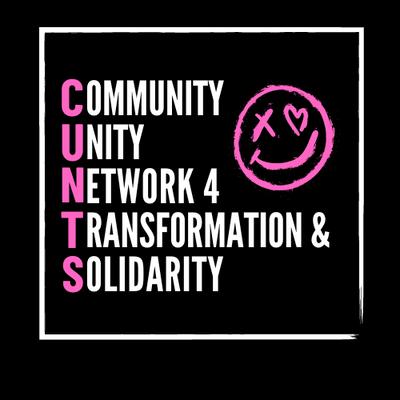
Cunts4change.org @c.u.n.t.s.usa












